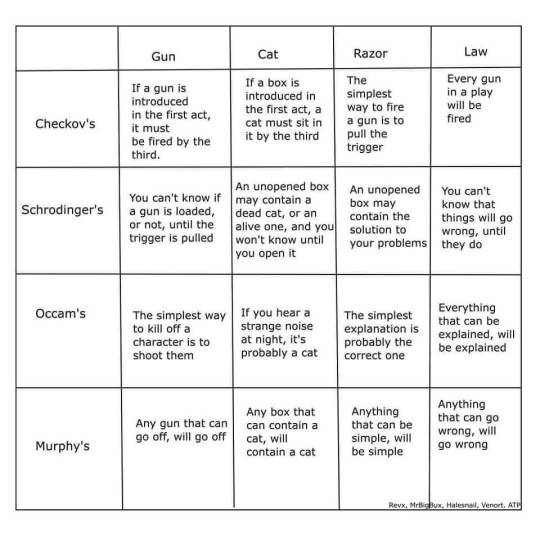#chekov's gun
Text

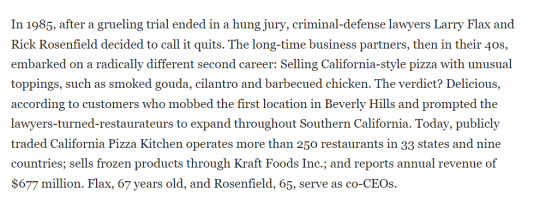

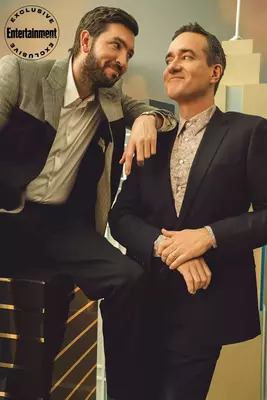
i've seen the vision.
#california pizza kitchen#chekov's gun#tomgreg#cousin greg#greg hirsch#tom wambsgans#succession#succession s4
153 notes
·
View notes
Text
Literary Devices Similar to Foreshadowing

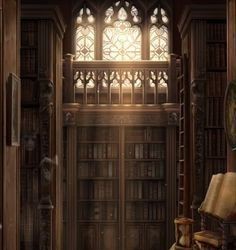
There are a number of literary techniques and practices that have some overlap with foreshadowing. Here are a few to keep in mind:
1. Chekhov’s Gun: is a writing best practice often confused with foreshadowing. Russian playwright Anton Chekhov famously said, “If you say in the first chapter that there is a rifle hanging on the wall, in the second or third chapter it absolutely must go off.” The refers to the idea that every element in a story should contribute to the whole, and that every detail that “sets up” an outcome should “pay off” in some way. In the example of Chekov's Gun that could mean one character shooting another but an author may also choose to defy that expectation—say, by filling the gun with blanks.
2. Red Herring: Unlike foreshadowing, which is designed to hint at something that will happen in your story, a red herring is a literary device that is designed to mislead the reader, distracting them from the eventual twist. Red herrings are often used in mystery novels, with characters suspected of a crime turning out innocent.
3. Flashforward: The opposite of a flashback, a flashforward (also known as flash-forward or prolepsis) brings your reader forward in time for a glimpse at the future. This is different from foreshadowing, as you’re explicitly showing your readers what is to come. Stories that employ flashforwards derive their suspense not from readers wondering what will happen, but rather how it will happen.
I've actually employed this literary device personally in one of my completed books 'Vicious Fangs' on wattpad and enjoy both reading and writing it!
#writing advice#writing tips#foreshadowing#red herring#books#writers#chekov's gun#anton chekhov#flash forward#readers of tumblr#daily life#bookaddict#writers on tumblr#dank memes#reader problems#book blog#booklover
608 notes
·
View notes
Text
Chekov's gun or something, i'm not a film critic

234 notes
·
View notes
Text
have you ever had a chekov’s gun moment where you see something you haven’t noticed before and you think wow sure hope that doesn’t come into play in act II?
anyway i just made direct eye contact with the fire sprinklers at work i’ll let you know how the next half of my shift goes
252 notes
·
View notes
Text
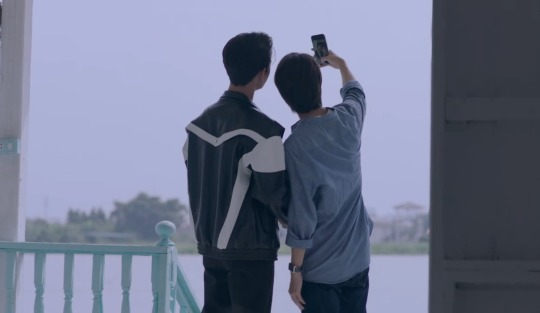
I love this but also I hate when characters take pictures in show you know DAMN WELL they're gonna have a flashback scene with a character crying over the picture
8 notes
·
View notes
Text
A trolley is barreling down a rail with two paths. On its current path, the trolley will crush a slightly irradiated box with a cat that may or may not be alive in it. A note attached to the box reads, "property of Schrödinger. Do not Crush."
12 notes
·
View notes
Note
I'm going to read the chapter later (looking forward to the emotional devastation) but I already looked at the chapter notes, and I actually would like the lecture/rant on Chekhov's gun.
I don't doubt that it's the appropriate term there, but I'm curious and incapable of not asking for information when it's offered :)
Happy to rant!
So, bit of context for anyone reading this post who isn't familiar with the concept of "Chekov's Gun": Anton Chekov, a Russian author and playwright, frequently gave the same bit of advice (with some variation in exact wording) to young playwrights he was mentoring: "If there is a gun hanging on the wall in the first act, it must go off in the second or third." In at least one of his letters with a variant on this advice, he said to cut any "unnecessary details".
Here's the thing, y'all. He was talking to playwrights.
I've studied a bit of script writing - not as much as I have narrative fiction, but some - and the thing about writing scripts is that you do not put any more information into the stage directions than is absolutely necessary.
SCENE: A feast hall.
SCENE: A forest clearing.
SCENE: A parlor room.
It's up to the director, and the stage manager, when the play is actually being put on, to figure out what the set is supposed to look like. This is why you can go to seventeen different productions of the same play and the exact same scene will be designed and staged differently.
Now let's say there's a good reason to get more specific. You only get as specific as you need to get in order to accomplish what you need in the scene.
SCENE: The feast hall at Castle Dubrach.
SCENE: A campsite in a forest.
SCENE: Colonel Mustard's parlor room.
That's a little more particular, and tells the director/stage manager a little more about how they need to set the scene. The feast hall doesn't just need to have food, it needs to look royal. There shouldn't just be a ring of trees, there needs to be some kind of tent, maybe a cooking fire. The parlor should look like it belongs to a military or ex-military man. You still have a lot of leeway in designing, but you need it to fit the scene.
Now, take something like this:
SCENE: The feast hall at Castle Dubrach. A roast bird sits in front of the king's plate, ready to be carved.
SCENE: A campsite in a forest, with a cooking fire.
SCENE: Colonel Mustard's parlor room. An antique rifle hangs above the fireplace under a hunting trophy.
If you're being that specific in the stage directions, there has to be a reason. Maybe the bird is actually a five-bird roast (a goose stuffed with a turkey stuffed with a chicken stuffed with a pheasant stuffed with a lark) and the new king has never seen one before, or maybe it's a reference to the badge of another household the king has just conquered. Maybe the spit is going to break and drop the pot into the fireand scatter sparks and cause an inferno, or maybe someone is going to be pushed into the fire and badly injured by the soup and flames. Maybe someone is going to playfully pretend to be a hunter and accidentally shoot someone, or maybe Mrs. Mustard is going to grab it and use it to defend herself from a home invasion. The point is, if you, the playwright, have specified that a scene must be staged a certain way, there has to be a reason. You can't - or shouldn't - just put unnecessary detail, it's only going to piss people off.
You also have to keep in mind how much detail needs to be kept. If the point of the roast turkey is that someone is going to stab the king with the carving fork, it doesn't necessarily have to be a turkey. If the pot isn't involved in the incident, it doesn't necessarily have to be a cooking fire. If the gun is just going to go off, it doesn't necessarily have to be antique. Just stick to what you absolutely, positively need any future directors (even if you're staging the first play yourself) to be sure to keep in.
Now. Here's the really, really, really important bit:
The audience should not know whether you put these things in the stage direction or not.
Are they serving that particular food at this feast because that's what the director thought the king would have served, or is it crucial to the plot? Is the fire just there to say "hey, this is a campsite", or is it going to cause problems? Does Colonel Mustard have a rifle hanging on his wall because he's an ex-soldier and that was the gun that saw him through the Boer War, or is it loaded and waiting to fire?
I blame TV Tropes (not exclusively, but they're a big part of it) for putting that phrase in people's minds and making them think it applies to every single running gag or small reference in a story. I think it also makes people tend to complain that something is "bad writing" if the gun doesn't go off, when a lot of times it isn't.
Just...the big thing, for me, is that you can't always anticipate Chekov's gun. It's something you can only apply retroactively. It's okay to wonder if the gun's going to go off, but it's not okay to complain that she used a knife instead when the murder didn't even happen in the parlor.
TL;DR Chekov's Gun really only exists in plays, it only matters if you're writing the play, and if you're sitting in the audience it's supposed to catch you off-guard when it goes off.
Enjoy the chapter. :)
#asks for ts#basilikum7#chekov's gun#literary analysis#ollie has incredibly correct opinions#ceaseless watcher turn your gaze upon whatever the fuck this is#long post for ts
5 notes
·
View notes
Text

Wonderful Things That May or May Not Be Wonderful!!!
One is a by the books super cop from the city promoted out to the countryside for being a by the books super cop. The other is a bumbling not super cop who loves action movies and wishes real life was more like them. Together, they'll work in a boring, little English hamlet where nothing ever happens. But when a series of bizarre and brutal accidents begin happening, these two unlikely allies must work together to punish those responsible for a most unlikely conspiracy while learning something about friendship along the way. In my frank opinion, this is one of the greatest comedies of all time along with being a fantastic parody of action movies. The movie is drop-dead hilarious, that much is certain (well, as certain as you can be with humor) but it's more than that. The writing is top-notch, almost every line and scene is important for later. The acting is phenomenal. The sound design is superb. There's a swan. Honestly, I find it hard to even talk about this movie because I don't know what more to say. It's Hot Fuzz! It's awesome! I haven't seen the rest of Edgar Wright's Cornetto Trilogy but if the other's are even half as wonderful as this, I'm probably missing out. Scratch that, I'm definitely missing out.
#wonderful#hot fuzz#cornetto trilogy#edgar wright#simon pegg#nick frost#movies#action#comedy#police#parody#swan#awesome#shaun of the dead#the world's end#united kingdom#great britain#chekov's gun#chekov's armory#favorite movies
16 notes
·
View notes
Text
going back and reading older chapters and realize your accidently wrote in a really important Chekhov's gun
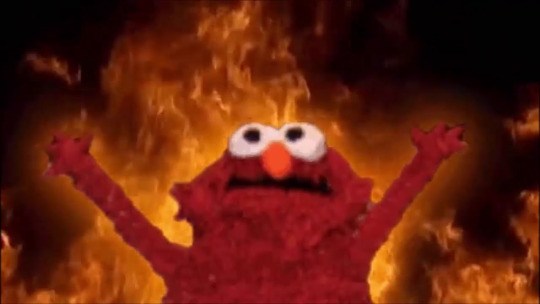
#at the time i didn't think much of it. i just wanted to add drama. AT THE TIME. and then it's just going to make an even bigger drama later#like trauma enducing drama#thank u past me u are a genius#i literally mentions this point ONCE in chapter three. haven't touched in since. won't touch it for a while more. BUT IT'S SO SO SO IMPORTA#FIFTEEN CHAPTERS. FIFTEEN. BETWEEN WHEN IT WAS WRITTEN AND WHEN IT WILL COME TO FRUITITION#i love chekovs gun#nemos thoughts#chekov's gun
2 notes
·
View notes
Text
Love this comic from @life-and-sundry (I couldn't find it shared on their Tumblr page, only their Facebook page where I got it)
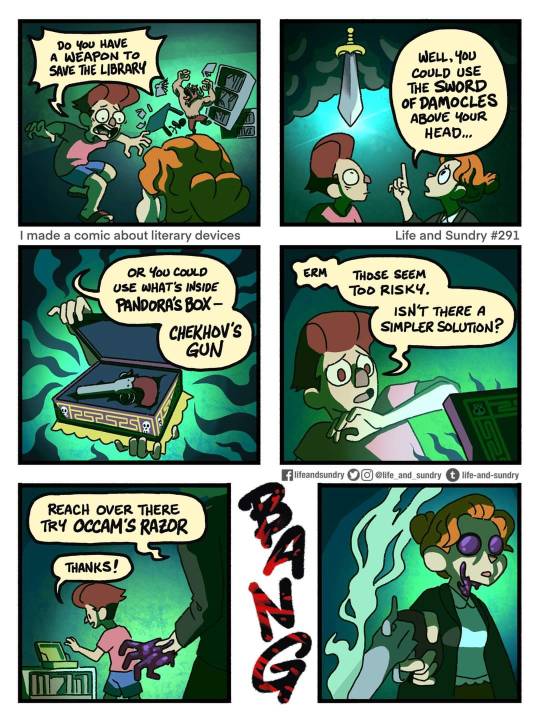
#Life and Sundry#Life and Sundry comics#comic#writing comic#writing#sword of damocles#pandora's box#chekov's gun#occam's razor#literary devices
2 notes
·
View notes
Text
So, this'll be Scylla and Raelle's ranch, yes?
Calling it now - by series end, Scylla returns here with Raelle and this is where they'll plan to set up home together! 🏠👩🏽❤️👩🏼

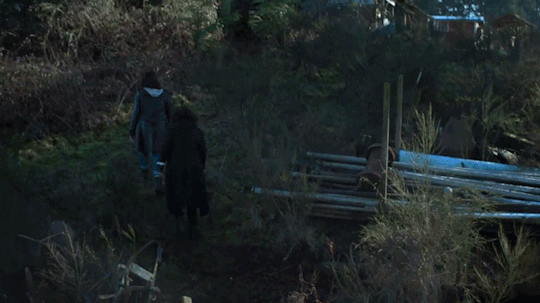



#chekov's gun#manifesting#motherland fort salem#scylla ramshorm#raelle collar#raylla#raelle x scylla#mfsedit#my gifs#m:fs#my predictions#my hopes
66 notes
·
View notes
Text
Lord Tippet: "You can't have a gun on stage!"
[REDACTED]: "WRONG AGAIN!"
[REDACTED]: "I CAN have a gun. And I MUST have a gun."
[REDACTED]: "That's the rule of Chekov's Gun; Have. A Gun."
[REDACTED]: "Now that it's been seen, I will have to shoot someone before the end of the play!"
#source: tiktok#lord tippet#redacted#chekov's gun#weapons drawn#trivia murder party#tmp#incorrect quotes#incorrect jackbox quotes#jackbox#jackbox party pack#jackbox games#tippet
29 notes
·
View notes
Text
Chekov's gun store, if you see it you have to buy it
3 notes
·
View notes
Text
Nanowrimo advice that just occurred to me: If you load a Chekov's gun and then decide you don't want to fire it, don't! You can retcon it out during revision. Or you if you get stumped you can get more words about what would have happened if that gun had fired. Maybe the alternate timeline is better than the main, idk
5 notes
·
View notes
Text
Sometimes I love TVtropes

#TV Tropes#memes#meme#Spongebob Squarepants#spongebob#patrick star#the ugly barnacle#something smells#chekov's gun
1 note
·
View note
